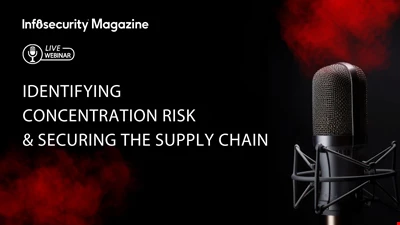Infosecurity News
Al Qaeda video calls on followers to wage 'electronic jihad' against the US
The US Senate's Homeland Security and Government Affairs Committee is warning that an Al Qaeda video calling for the “covert Mujahidin” to commit “electronic jihad” against the US demonstrates the urgency of enacting cybersecurity legislation.
Hacker group steals half million client records from billing firm
The hacker group UGNazi was able to infiltrate the billing system database of WHMCS, a billing and customer support provider, and steal 500,000 client records, including credit card details.
Monday Mail Mayhem: Anonymous dumps 1.7GB from the DoJ
Monday Mail Mayhem was this week launched by Anonymous starting with the Pirate Bay dump of a 1.7GB database stolen from the Department of Justice, and the release of the traditional Anonymous video announcement.

Diablo III gaming accounts hacked, servers taken offline
Blizzard Entertainment’s newly launched Diablo III video game was hacked within a few days of its launch, and servers in Europe were taken offline for four hours on Sunday.
Bomb threat halts construction of NSA top-secret cybersecurity center
A bomb threat halted construction of the National Security Agency's top-secret cybersecurity intelligence center being built at Camp Williams, Utah.

Sensitive data on British Army snipers end up in trunk of used car
Sensitive information about British Army snipers was found in the trunk of a used car, according to press reports.
Indian CERT handled over 13,000 cybersecurity incidents in 2011
The Indian Computer Emergency Response Team (CERT-In) handled 13,301 cybersecurity incidents in 2011, up from 10,315 incidents in 2010 and 8,266 incidents in 2009.
TeliaSonera sells black boxes to dictators
While the UK awaits details on how the proposed Communications Bill will force service providers to monitor internet and phone metadata, Sweden’s TeliaSonera shows how it could be done by selling black boxes to authoritarian states.
Opfake malware being disguised in Android games
Symantec researchers recently discovered several dummy sites being used to peddle the Android.Opfake malware, which is being disguised as games such as Temple Run and Cut the Rope.
China's ZTE admits to backdoor in mobile phone model
China mobile phone maker ZTE admitted that one of its mobile phone models sold in the US contains a backdoor that could enable someone to take control of the device.
Understanding the legal problems with DPA
We have known for many years that the EU is not happy with the UK’s implementation of the Data Protection Directive – what we haven’t known is why. This may now change thanks to the persistence of Amberhawk Training Ltd.
Who attacked WikiLeaks and The Pirate Bay?
This week both the The Pirate Bay and WikiLeaks have been ‘taken down’ by sustained DDoS attacks: TPB for over 24 hours, and Wikileaks for 72. What isn’t known is who is behind the attacks.
BYOD threatens job security at HP
BYOD isn’t simply a security issue – it’s a job issue. Sales of multi-function smartphones and tablets are reducing demand for traditional PCs; and this is hitting Hewlett Packard.
UK council objects to ICO fine for data loss resulting from burglary
A UK council is objecting to a 70,000-pound fine levied by the Information Commissioner’s Office (ICO) for losing sensitive data as the result of a theft at an employee’s home.
US firms team with German institute on cybersecurity center
US high-tech firms have teamed with German research institute Fraunhofer FOKUS to open a cybersecurity research center in Berlin.
25 civil servants reprimanded weekly for data breach
Government databases are full of highly prized and highly sensitive personal information. The upcoming Communications Bill will generate one of the very largest databases. The government says it will not include personal information.
Vulnerability found in Mobile Spy spyware app
Mobile Spy is covert spyware designed to allow parents to monitor their children’s smartphones, employers to catch time-wasters, and partners to detect cheating spouses. But vulnerabilities mean the covertly spied-upon can become the covert spy.
McAfee uncovers Pinterest scamming toolkits
US security firm McAfee recently uncovered several ready-to-use toolkits that enable hackers to redirect unsuspecting Pinterest users to malicious websites with only a couple lines of code.
Online travel industry is most vulnerable to email attack
The online travel industry is the most vulnerable to email attack, according to a newly launched email trust index by email security firm Agari.
Utah governor fires state's technology director over medical data breach
Utah Governor Gary Herbert has fired the director of the state’s Department of Technology Services (DTS) over a breach that exposed healthcare records of 780,000 Utah Medicaid recipients.



